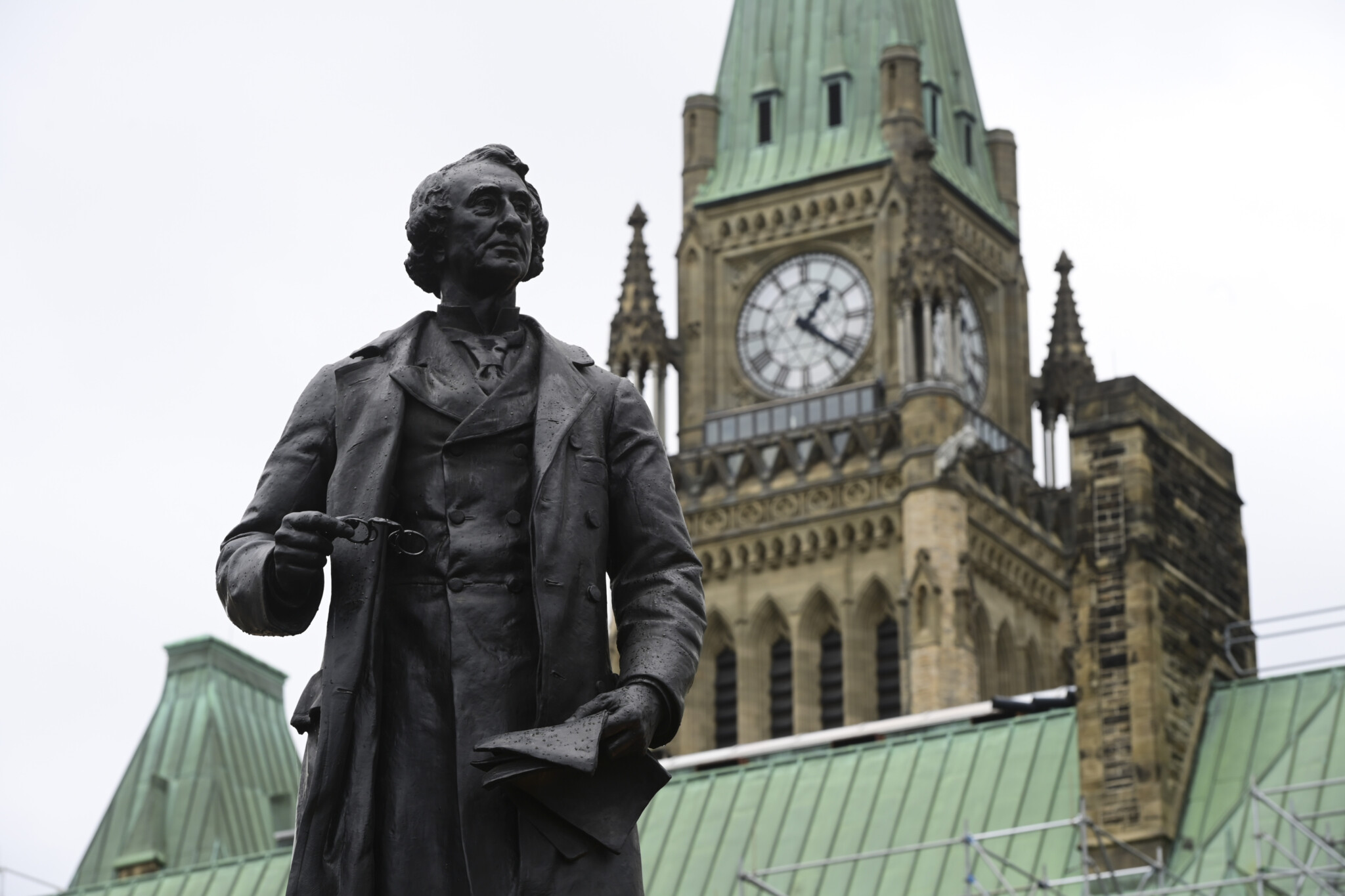
This year marks the 60th anniversary of Canadian philosopher George Grant’s Lament for a Nation: The Defeat of Canadian Nationalism, a seminal work that reshaped Canadian political discourse. Published in 1965, Grant’s critique of American cultural dominance and technological modernity challenged Canadians to reconsider their national sovereignty and identity. To mark the occasion, this summer, The Hub will feature a series of essays from big thinkers exploring the book’s enduring legacy and how its insights remain vital to understanding Canada and its relationship with the United States today.
The Hub has marked the 60th anniversary of George Grant’s Lament for a Nation with essays and interviews for the past several weeks. The contributors to the series have varied in their sympathies (or antipathies) towards Grant’s views on liberalism, capitalism, and even the essence of Canada itself. It’s been a spirited debate about the country’s past and its future.
The two sides can be crudely divided between those who share Grant’s conservative doubts about American-style liberalism and capitalism (and their attendant political and technological consequences) and those who see them less as a foreign imposition and more as key parts of Canada’s own intellectual heritage.
I happen to fall firmly in the latter camp. Which is to say, my view is that Lament’s central premise—Canada was conceived as a non-liberal state that was ideologically invaded by the United States—is wrong.
Canada was liberal from the beginning. Not in the modern, progressive sense, but in the classical tradition of individual liberty, responsible government, and cultural and religious pluralism. The founders of Canada—figures like Baldwin, LaFontaine, Cartier, and Macdonald—may not have been Jefferson-like rhetoricians, but they were fundamentally liberal and, in turn, sought to build a mostly liberal-democratic order.
Our political institutions were built on British liberal constitutionalism. Our economic system was oriented towards markets and mobility. And our culture prized peace, order, and good government, not because of deference to hierarchy, but out of a commitment to democratic self-rule.
It’s no coincidence that in the famous Hartz-Horowitz formulation about Canada’s political culture— “Lockean liberalism with a Tory touch”—liberalism is the subject and Toryism is the modifier. The country’s origin story, including the British North America Act and its underlying ideas, should be understood first and foremost as a liberal one tempered by history, geography, and a spirit of relative moderation.
Grant’s misread of the confederation project itself distorts the rest of his analysis. If Canada was never quite the communitarian and solidaristic society that he imagined, then his lament is misplaced. The issue isn’t that we became liberal and capitalistic over time. We started out that way. His real problem, in other words, was with Canada itself.









